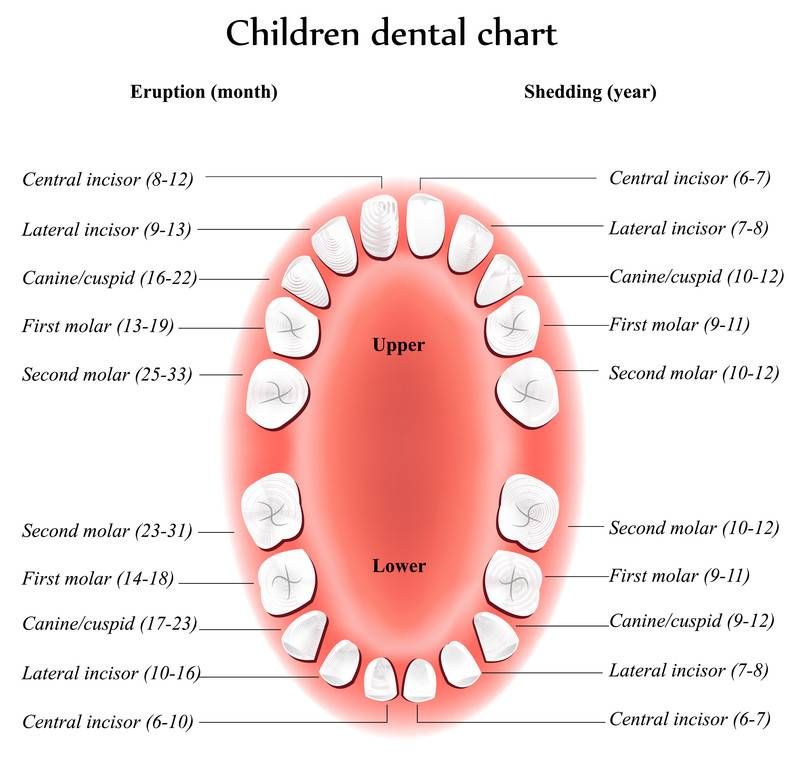How to help your child with confidence
11 tips on building self-esteem in children
Last week, my son Aaron made the school soccer team. Boy, was I proud. And I couldn’t stop saying so. “Good job, buddy! You’re the best!” I beamed, he beamed, and all seemed right with the world.
It’s not the first time my kids have heard me shout their praises. I’m the resident cheering section, their biggest fan, a back-patter extraordinaire. These days, you can find me handing out compliments as if they’re sticks of gum—when my kids practise guitar, score a goal, help with dishes. The mom logic goes like this: The kid does good (or good enough for me), so I make him feel great about himself. It’s called boosting self-esteem. Or so I thought. Here are some things you may not have considered about building self-esteem in children.
1. Step backAs it turns out, there are better ways to build self-esteem than heaping on praise for everything kids do—starting with helping them become competent in the world, says Jim Taylor, author of the book Your Kids Are Listening: Nine Messages They Need to Hear from You. To do so, though, you have to learn to step back and let your child take risks, make choices, solve problems and stick with what they start.
Jose Luis Pelaez Inc/ Getty Images
2. Over-praising kids does more harm than goodSelf-esteem comes from feeling loved and secure, and from developing competence, Taylor says, and although parents often shower their kids with the first two ingredients, competence—becoming good at things—takes time and effort. “As much as we may want to, we can’t praise our kids into competence,” he says.
In fact, by over-praising kids, we’re doing more harm than good. “We’re lowering the bar for them,” Taylor says. “If you keep telling your child she is already doing a fantastic job, you’re saying she no longer needs to push herself. But confidence comes from doing, from trying and failing and trying again—from practise.”
Samantha MacLeod, who has four boys, ages one to nine, believes constant complimenting can actually erode self-esteem. Either kids start thinking they’re perfect or they try to be perfect all the time—an impossible standard. And inaccurate praise confuses them, she says. “If my son can’t spell and I tell him he’s doing terrific, he learns not to trust his own instincts. He also learns that praise is just flat-out lying.”
Plus, Taylor adds, telling your child he’s the best, the smartest or the most talented is setting him up for some very bad news down the road. You’re creating an egomaniac who thinks his scribbles are Rothkos but, sooner or later, he’ll discover he’s not all that after all.
3. Let your child take healthy risksStart by forcing yourself to stand back while your child takes healthy risks, says Victoria Sopik, CEO of Kids & Company, a corporate childcare service in Toronto, and a mother of eight. “To build confidence in the world, kids have to take chances, make choices and take responsibility for them,” Sopik says. She sees too many parents trying to rescue their kids from failure all the time.
Sopik remembers staring from across the room as her two-year-old son, Fraser, lifted a huge jug of orange pop at a fancy party. “He was about to pour it into a glass, and I just stood there, holding my breath,” Sopik recalls. Rather than trying to save her son before he had a chance to try, Sopik watched as Fraser spilled the pop all over the floor.
Then came the best part: Fraser found a waitress, asked for a paper towel and cleaned up his own mess. “He solved his own problem—just like we do as successful adults,” Sopik says.
Maria Korneeva/ Getty Images
4. Let kids make their own choicesWhen kids make their own age-appropriate choices, they feel more powerful, says Sopik, pointing out that kids as young as two can start considering the consequences of their decisions. Sopik always let her kids decide on their own whether to wear a coat, hat and mittens in winter. “Once they knew the difference between warm and cold, it was up to them. They should have control over their bodies and take responsibility for their choices,” she says.
Marilyn Nieves/ Getty Images
5. Let them help around the houseIn building self-esteem, kids also need opportunities to demonstrate their competence and feel that their contribution is valuable, says Taylor. At home, that means asking them, even when they’re toddlers, to help with cooking, setting the table and making beds.
aquaArts studio/ Getty Images
6. Encourage them to pursue their interests (fully)Another surefire way to boost confidence in kids is to encourage them to take on tasks they show interest in, then make sure they follow through to completion. It doesn’t matter what the task—it could be anything from swimming laps to beating levels in video games. The point is for them to stick with what they start, so they feel that hit of accomplishment at the end.
FG Trade/ Getty Images
7. What to do when children struggle or failWhat if your child’s self-esteem plummets when she gets cut from the gymnastics team or can’t memorize multiplication tables?
PIKSEL/ Getty Images
8. Don’t lose sleep over it“So many parents have it backward," Taylor says. "They think struggles and failure will hurt their kids’ self-esteem, but it’s actually a golden opportunity to help build it.”
VioletaStoimenova/ Getty Images
9. Make clear that your love is unconditionalLet your child know you love her even when she fails or makes bad decisions. If all you talk about is performance, Sopik points out, she will think you only love her for her report card or the lead she got in the play.
Erdark/ Getty Images
10.That may mean suggesting he join house league, where he can feel like a star rather than being the last one picked on the AA team. MacLeod learned this lesson when her son, Alex, was in grade two. Feeling like a failure at reading, Alex was ready to give up when MacLeod brought home some Magic Tree House books, which were slightly below Alex’s level. “He read one every two days and was so proud of himself that he went on to read the Goosebumps series, no problem,” she recalls. Afterward, mother and son talked about how Alex’s choice to practise paid off, and she praised his perseverance.
Jose Luis Pelaez Inc/ Getty Images
11. Offer appropriate praiseAlthough praise is often misused, when it’s specific and earned, it is a valuable self-esteem builder, Taylor says.
Lorna Crosse, a former music teacher, remembers asking her choir students to keep a “brag file” full of praise they earned. Any time they saw their names in a program or newspaper article or received a complimentary note, they were to put it inside. “When the kids had a bad day, they would take out those words of praise and read all the neat things they had done, and it would make them feel better about themselves.”
The brag file works because it shows kids specific ways they’re special and teaches them that practise reaps rewards, Taylor says. And it’s the practise—the effort—that should be the focus of praise, Sopik says. “Don’t just say ‘great play’. Tell him it was awesome how he passed the ball to his teammate.”
And keep in mind that a little indirect praise, such as stars on a chore chart, can work wonders. Mom Nancy Botelho gets even more inventive. She makes sure her kids “overhear” a little boasting. “I’ll tell my friends how the teacher said Margaret is so kind, or how I saw Bridget working so hard at tying her shoes. The kids just shine. Since they were spying, they know I mean it and I’m not just trying to make them feel good. ”
RyanJLane/ Getty Images
Your self-esteem checklistHere are some of the things that the Canadian Mental Health Association says you can do to help raise confident—not coddled—kids:
Feel special. It’s imporant for you to help your children discover their own unique talents and qualities, and to value their own strengths. But also teach them that feeling special doesn’t mean feeling better than others.
Set goals. Teach your kids to work towards a goal and to have pride in their accomplishments. Provide them with opportunities for success.
Try, try again. Encourage your children to try things their own way, face challenges and take risks.
This article was originally published in July 2013.
SDI Productions/ Getty Images
This article was originally published on May 01, 2020
FILED UNDER:
Mental healthParentingapp-neonate and teenservice seo
How to Build Your Child's Confidence and Self-Esteem
By
Monica Foley, M. Ed.
/ August 9, 2022 August 9, 2022 / Child Development, Communication, Expert Parenting Articles
Self-esteem plays a significant role in the development of healthy children. A recent study published in the Journal of Experimental Social Psychology suggests that a child’s self-esteem is already established by age five and is comparable in strength to that of adults. Children with high self-esteem generally become more successful in life.
Unfortunately, the outcomes for children with low self-esteem can be quite poor. As a parent, your child’s self-esteem is primarily your responsibility. You can do a lot to help your child feel confident and competent.
Children with high self-esteem have the confidence to try new activities and feel a sense of pride in their accomplishments. While it’s never pleasant to fail, these kids possess the emotional ability to withstand the lack of success and maintain the courage to try again. Children with low self-esteem are self-critical and have difficulty being positive when making mistakes, which may make them unable to try again or refuse the next opportunity to succeed.
Children can be sensitive and have a peer group that can be harsh, so as a parent, what you do at home matters tremendously. Your child’s healthy self-esteem will also serve as a buffer to survive the unpleasantness of other kids.
Give your child the best chance to thrive and be happy. Use the following strategies to help them feel good about themselves:
1. Love your child unconditionally. Every child should believe that no matter what they do—success or failure—their parents still love them and will continue to be there for them. Consider the impact on a child’s self-esteem when they believe they’re only loved when they behave a certain way or achieve a specific result.
2. Spend quality time. Spending one-on-one time with your kids has more to do with ordinary daily life than what you might initially expect. It’s simple and meaningful interactions, such as bedtime stories and family dinners, that are essential for your child’s development and future relationships. Try to carve out time to connect with your child daily.
3. Help to set achievable goals. Few things are more beneficial to self-esteem than success. Work with your child to establish these goals. Begin with goals that are easy to accomplish to provide them with a taste of success and the confidence boost that goes along with it. For example, an achievable goal for a young child might be to pick up their toys and put them away.
4. Encourage persistence. Success and persistence go hand-in-hand. Encourage your child to be persistent, and you are showing them how to be successful. Praise them when they stick to a difficult task and don’t give up. One way you can help your kids is to set a good example. Demonstrate what it means to persevere and to have a positive attitude.
5. Give your child choices. When you don’t have control over your life, it’s hard to have self-esteem. Give your child choices to provide a sense of self-control and encourage their ability to trust their own judgment. This can be as simple as giving them two options for lunch or choosing what outfit they wear to school, even if it’s a little mismatched.
6. Discourage perfection. Discourage your child from attempting to be perfect—a game no one can win. Your child’s self-esteem will suffer when they realize they can never be perfect. Show them that you value effort and progress. These are actions that anyone can achieve.
7. Avoid over-praising. Your child knows when your praise is excessive. In fact, excessive praise has been shown over time to hurt a child’s confidence rather than boost it. Give credit when recognition is due. Praise your child for making a reasonable effort, and be as specific as possible versus speaking in general terms. For example, instead of saying, “That painting looks beautiful!” say something like, “I love the way you used so many different colors!”
8. Allow your child to overhear you complimenting them. A child gets a significant boost in their self-esteem when they hear a parent praising them to another adult. Your kids are always watching you. Use that to your advantage whenever possible.
9. Take good care of yourself. Taking proper care of yourself shows your kids that you’re important and value yourself. They will believe they’re important and should also take care of themselves. You can model to your child how to make themselves a priority.
There’s no doubt that a child with high self-esteem is happier and more confident. We want the best for our children, so our responsibility is to help lead them down this path.
What we do at home can significantly impact our children’s future. Teach your children to love, value, and believe in themselves, and they’ll reap the benefits throughout their lives.
6 ways to help your child become self-confident
children's center and
youth
Development
Phones
+7(495)135-15-45+7(901)388-61-35
Author: Anastasia Rybakova
Contents:
- Self-confidence - what is it?
- Why does a child need self-confidence?
- The child has become unsure of himself - what are the reasons and what to do?
- 6 ways to help your child become self-confident
- Psychological advice for dealing with self-doubt
- My personal experience - how I dealt with insecurity
In today's world, situations often arise when parents see that a child is withdrawing into himself, he has problems with self-esteem, with communication and hobbies, and not only. These are all signs that the child lacks self-confidence. My name is Nastya, I am 16 years old, and I decided to figure out why this is happening and how to help the child (and parents too) cope with this phenomenon.
Self-confidence what is it?
To make our conversation more informative, we need to understand some key theoretical points.
What is self-confidence? We can talk about many things, this is an adequate, directed in a positive direction, assessment of oneself and one's capabilities, the ability to accept one's shortcomings...
This is what helps not to give up even in the most difficult times of life, to go forward, no matter what.
Why does a child need self-confidence?
We are used to the fact that adults think about self-confidence more often than children, it is more important for them. It's probably some kind of stereotype. After all, kids need more than that. Even more. Let's figure out why.
Self-confident children grow into self-confident adults!
That is, it is worth developing a child's self-confidence, at least so that everything is fine in his adult life. The phrase we all come from childhood fits here more than ever. All children's grievances, complexes, and so on greatly affect our place in life, success in the future.
Psychologists have found that the degree of success in adulthood directly depends on the degree of self-confidence.
- A child needs confidence in order to:
- He had healthy relationships both in the family and with peers;
- He studied easily, passed exams and answered at the blackboard;
- Tried new things and was not afraid to make mistakes;
- To grow up a happy person.
Nowadays this character trait is simply necessary everywhere and in everything!
The child has become unsure of himself - why and what to do?
It happens that initially the child was quite self-confident, open and positive, parents worked on the development of this quality, but suddenly he became more closed, more and more often a negative mood began to prevail.
First you just need to talk to him. Perhaps he himself will tell you the reasons for his behavior, his isolation. But if not, here are the 3 most common causes of self-doubt in toddlers:
- Lack of love
If a child feels some kind of alienation from people close to him, he withdraws into himself and feels anxiety and loneliness.
- No support
If you are constantly on anyone's side, but not for your child, leave him alone with his fears and do not help the child to fight them or experience them together, then the child experiences some kind of confusion, excitement.
- Intimidation, aggression
If you often shout at your child, frighten him, for example, with various difficulties, or beat (!!!) there is nothing surprising in the fact that the child is not self-confident. In this case, there is also no question of trusting relationships in the family.
6 ways to help your child become self-confident
So how can you help your child become more self-confident?
I have 6 tips for you:
- Do not criticize, but support and guide
How many of us like it when our work or our actions are criticized, and sometimes unjustifiably? That's right, nobody.
Your support is very important for your child.
For example, oh my god, never draw again, you're awful at it, it's not yours, but well done, you try so hard! Try again, you will definitely succeed!
I think the difference is obvious. In the first case, the child will be upset and with a 99% probability will no longer touch drawing, and most likely will destroy his talent, albeit hidden under a hundred randomly painted sheets. And in the second, the child will try again and again, and someday he will become, perhaps not a Van Gogh, but a very good artist.
- Let the child make mistakes
At the same time, from childhood, let him understand that he himself bears responsibility, although not yet complete, but nevertheless, for his actions and what they led to. Tell your child why mistakes are okay.
We are not all perfect.
Again, returning to the previous paragraph, direct. Let's have a choice.
Let the baby understand that he can choose this or that, and learn to understand the consequences of his choice.
- Focus on your child's strengths
Each of us has something that turns out better and worse
If a child cannot sing, but he dances beautifully, give him the opportunity to develop in the area that causes positive emotions in him, in which he feels comfortable.
No need to force him, figuratively speaking, to stand on a stool in front of the guests and sing, this will confuse the child, and knowing that vocals are not his forte, such a situation will remain in his head for a long time in the form of a kind of nightmare.
- But at the same time, explain to the child why one should accept one's shortcomings
I must say right away that this advice is more suitable for a teenager. Explain that the shortcomings are also one of the sides of his character, and that it is worth working on it.
Show by example how to get rid of some complexes.
If there is a fear of public speaking, try to be in situations where you need to say something to a large enough audience as often as possible, etc.
Having overcome one or another of his fears, a teenager will almost immediately feel much more self-confident.
- Instill in your child the habit of continuous development
Again, this advice applies more to teenagers. Now in the world of teenagers there are two trends: some of us prefer to stay at home, playing computer games and spending days on end in virtual life, others still strive to learn as much as possible new, to know the world and find our place in it through continuous development. I am glad that the second over time becomes more and more.
If the child is not instilled from childhood, and then not explained in adolescence the full significance of continuous development, he may have problems at least with self-esteem, hence with self-confidence.
People who love development and realize its value are more self-confident, and this is an indisputable fact.
- Do not compare
The fact that parents constantly compare the child with someone else, especially if the comparison is clearly not in the child's favor, discourages him from doing something because there is always someone better.
Consequently, there is no need to talk about self-confidence in a baby growing up in such a family, but there are more than enough inferiority complexes.
Each person is unique, and you need to love and try to accept your child as he is.
Naturally, these are not all ways to help a child become self-confident, but only a part, but they are one of the most effective.
Of course, you also need to take into account the age characteristics of the child and apply the above tips, focusing on the age of your child.
1 to 3 years old , for example, the baby needs to be given at least a little independence and gradually expand its boundaries.
From 3 to 7 years old a child can already see the difference between his physical and emotional states and somehow correct them depending on the situation. It is at this age that children are most often prone to copying the behavioral models of their parents, so take care of yourself as well.
Psychologists' advice on dealing with childhood insecurity
What do psychologists think about this? How do they see a competent struggle with self-doubt? Let's find out now!
The most important thing to do is to love yourself .
The first step towards this is to accept yourself.
It is more difficult for a child to do all this, he is not yet so knowledgeable in psychology and in principle of life, so you should tell him about it. Show such things with your own example.
Tell him a simple truth no matter what you do, I will always love you, I will always be on your side, I will always support you.
Yes, after saying this, the child might try to do something not very good to test the strength of the ice. Your task is to take it calmly and explain what he is wrong about.
You did wrong, it should be corrected. I'm upset by your behavior. But I always love you, even when I am unhappy with your behavior and scold you.
Do not demand from a child what he is unable to fulfill.
I already mentioned this above in the tips.
Each person is unique, each of us has different capabilities and abilities, and it is a bad idea to demand from a child the realization of his own unfulfilled goals and desires.
Always try to prove some statements/beliefs by your own example.
If a child sees that you are dependent on the opinion of society, try to isolate yourself from the outside world and hide in your comfort zone, do not be surprised that he will behave the same way.
If you don't want your child to repeat some of your mistakes or not the best traits of your character, learn and change with him.
Give your child the opportunity to make choices and make mistakes, but don't demand too much from him.
Children are children after all. Do not intimidate, but do not try to protect yourself from all the bad things that theoretically take place, there is no and cannot be one hundred percent insurance.
Consider the psychological characteristics of your child in all situations.
This is both temperament and his psycho-emotional state at one time or another, and much more. Your behavior also depends on the complex of the psychological capabilities of the baby.
Sometimes a child should be encouraged and motivated to, for example, do something else, and sometimes give him the opportunity to relax and calm down by stopping classes.
Teach your child to understand his feelings and accept support, make mistakes and correct mistakes
It is very useful to attend confidence courses for children aged 6-8. Because this trait is brought up from childhood. And if this age of the child has already passed, you can learn more about yourself at teenage confidence trainings. Or it is important to study the information in books so that the child understands what is happening to him and therefore develops awareness.
How I coped with my insecurities
It so happened that in my childhood and early adolescence I was a very insecure and insecure child.
This was influenced by many factors - excessive demands and expectations of parents in many ways. As a result, I developed perfectionism. It brings to something good in extremely rare cases. And also - my closeness as a character trait.
I was afraid to try something new, to make mistakes, if something did not work out, I gave up, got upset and refused to try again.
I am grateful to my friends who were by my side at the age of 13.
It was only then that I began to become more relaxed, open up and, probably, became truly alive, it was all thanks to them.
Around the age of 14-15, I myself reached the point of what self-confidence is for me personally, how can I personally develop this quality in myself. Life has become much easier.
I started getting interested in psychology, it was very interesting for me to understand myself, and this field of activity helped me become who I am now. I like myself like this.
Yes, now sometimes, in some situations, I can close myself, but I'm glad that I'm learning to get out of my comfort zone and overcome some complexes, unfortunately, that appeared in childhood.
I am proud that I had the willpower not to quit halfway through what I started. It was difficult, because the people around me got used to me being quiet, withdrawn, that you can laugh at me, etc. I think that I am well done, that I have not finished fighting my fears, I have overcome myself, and most importantly, I have stopped paying attention to the opinions of society.
It is important to understand that people will always say something.
It's not, it's not. Doesn't matter. The main thing in this countless number of judgments is not to lose yourself and your views on life.
Whatever you say, trainings and courses on confidence development are very useful. They give the opportunity to understand that not only you have such difficulties, to understand yourself, get support and feel that you are understood.
What I would like to say in conclusion of our conversation:
Love your children. Talk to them, try to understand and accept everything that happens in their lives, their views, opinions and choices. Try to be sensitive towards them. Their behavior, their place in life in the future directly depends on how their childhood passed, what was the psychological climate in the family. It is in your hands to do everything possible so that the adult life of your child is filled with happiness, harmony and confidence in yourself and your abilities! I wish you success!
subscribe
for news
order training
for a group
contact
contact us
How to develop a sense of self-confidence in a child
home
Parents
How to raise a child?
How to build a child's self-confidence
- Tags:
- Expert advice
- 0-1 year
- 1-3 years
- 3-7 years
- 7-12 years
- teenager
- communication skills
Various factors influence the formation of confidence in childhood: the attitude of parents, peers, teachers towards the child, as well as the first successes and defeats. When a child goes to school, his qualities and abilities undergo a serious "test" for strength. In order for this test to be successful, parents should in advance, from the age of four or five, start educating their children in self-confidence and their abilities.
Today, psychologists identify six basic rules that help in one way or another to build self-confidence in a child.
1. Start with yourself
Children adopt many traits and behaviors of their parents. So before you start building confidence in your child, pay attention to your relationship with your spouse. Children react very painfully to parental quarrels, even if they are not their participants or witnesses. The tense atmosphere that reigns in the house after any conflict negatively affects the emotional state of the child, undermining his trust in his parents. Try to show respect for each other under any circumstances, then your child will feel more confident. In families where the "microclimate" is bad, children are unlikely to grow up as optimists and be at least somewhat socially successful. The parent's self-doubt is passed on to the child, who reproduces their low self-esteem. And she, in turn, can cause his failure in any activity - this is how a vicious circle arises.
According to some experts, raising a child's confidence should not be an end in itself for parents. First of all, form in it a harmoniously developed personality. And this requires conversations with the child, encouragement of his initiative, respect for the personality of the child, a normal microclimate in the family. You can find out how the singer and actress Anastasia Stotskaya is raising her son Alexander by watching the program “We Are Parents”.
2. Develop communication skills
Self-confidence is formed in the course of interaction with other people. Teach your child to express their desires and feelings. Shy children often follow other people's opinions because they do not know how or are embarrassed to explain to others what they want. It is necessary to teach such children the skills of communication with peers. To do this, you can make a list of phrases that help build a conversation, and rehearse dialogues on various topics. A good help for such activities are role-playing games, where each participant is given the opportunity to be in the lead role.
3. Do not compare a child with other children
Comparing a child with other children, and not in his favor, adults run the risk of forming an inferiority complex in him, which interferes with the harmonious development of his personality. The child's lack of confidence in the support of parents leads to the fact that he begins to feel unloved and unwanted. For normal development, children need to be in an atmosphere of love and psychological well-being. It is important for a child to be sure that in difficult times, parents will always come to his aid.
4. Recognize the child's right to be who he/she is
It is not uncommon for adults to want their children to have certain qualities and abilities that they consider useful for the child. In an effort to bring them up in their baby, parents do not notice or do not appreciate the qualities that the child has. Try to objectively evaluate your expectations from children: are they too high? In this case, the child may be haunted by the fear of not meeting your expectations, fear of failure, which undermine the basis of his faith in himself. It also matters how well adults are able to understand the needs and interests of their child. Accept the child as a person. Then there will be fewer reasons for reproaches, and much more reasons for pride and praise.
5. Develop talents and abilities
Help your child find activities that will help develop their existing abilities. A positive result will not only give self-confidence, but also increase his self-esteem. The main thing is that these activities should not be forced, otherwise they will not bring any benefit or satisfaction to the child. Therefore, do not insist on what exactly you think is more useful for him. Give him the opportunity to determine what he wants to do (for example, music, sports or art). On our website you can find out how to choose a creative studio or sports activities for a child.
6. Praise the child for any merits
Any, even insignificant, successes of children should not go unnoticed by parents. Praise your child for merit: for good grades in school, for winning sports competitions, for a beautiful drawing, for obedience. Praise will have a beneficial effect on his self-esteem. However, the guest of the program "How to Raise a Happy Child" Elena Piotrovskaya suggests not just praising the child for his actions. Child psychologist offers to communicate with the child. It is interesting to replace direct praise with qualitative and quantitative questions about the work done by the child. And let him draw a conclusion about your attitude to his act. Genuine interest and the lack of a direct qualitative assessment of his activities will help develop an analytical mindset in a child.












